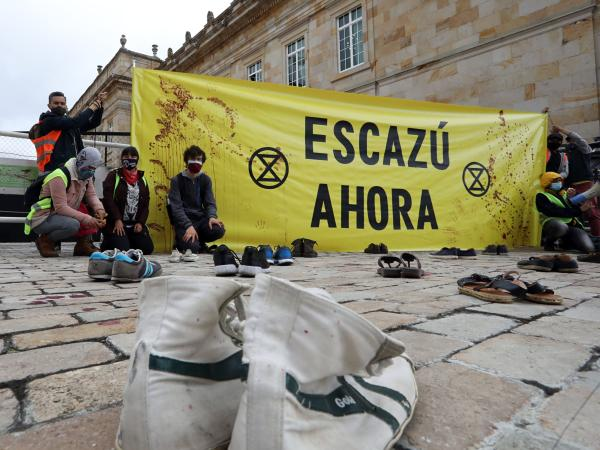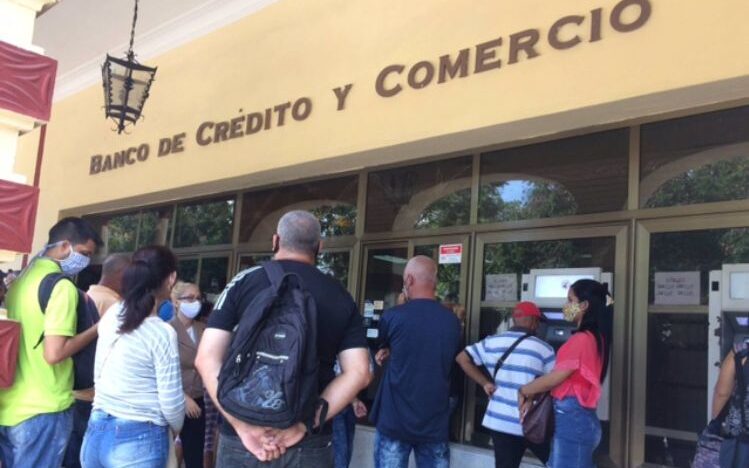The Plenary Chamber of the Constitutional Court gave constitutional approval to the Law 2273 of 2022which ratified the call Escazu Agreement in the country.
It is worth mentioning that this agreement is an international treaty, promoted by the countries of Latin America and the Caribbean, which includes mandates for the protection of environmental leaders, promoting environmental justice and preventing conflicts of this nature..
In the Colombian case, the ratification of this agreement was one of the first initiatives promoted by the current National Government.The political change brought a change that had not been possible in three years and that is the ratification of the Escazú Agreement“, said at the time the Minister of Environment and Sustainable Development, Susana Muhamad.
(You can read: ‘Printing money’: Petro revives controversy over subjects lost in Economy).
Constitutional Court
Courtesy
How was the vote cast?
The high court, with a presentation made by the Judge Jorge Ibañezwhich was approved unanimously (with eight votes due to an impediment by Judge Vladimir Fernandez), determined that The agreement meets all the legal requirements that the Constitution demands.: “The previous governmental phase, as well as the legislative process of approval of the Agreement, satisfy the requirements provided for in the Constitution and the Law for this purpose.“the high court warned.
(Besides: Investigation into the relationship that Ricardo Roa’s partner may have with the Urrá contracts case).
The Constitutional Court added that the agreement, “It was not necessary to exhaust the prior consultation“because the said treaty, which will now be applied in the country, “It does not cover specific regulations on aspects that directly affect ethnically differentiated communities.“.
The court also mentioned that the Agreement “was not subject to the reservation of statutory law“, mechanism that seeks to subject the regulation of matters related to fundamental rights to greater democratic discussion and control.

Escazu Agreement
Sergio Acero Yate / Portfolio
“The regulation inserted therein focuses on achieving the full and effective implementation of access rights in environmental matters. It also seeks to reaffirm the commitment to establish a safe environment for environmental defenders. These purposes are issues that matter to all Colombian citizens.“the Constitutional Court warned in a press release.
What comes with the Agreement
The Plenary Chamber of the Constitutional Court concluded that the Agreement if it complies with the parameters required by the Magna Cartawell “The full and effective implementation of access rights in environmental matters is an essential requirement to guarantee citizen participation and therefore corresponds to the provisions of articles 1, 2, 40, 79 and 95 of the Political Constitution.“.
(You may be interested in: The first heads of state who confirmed their attendance at COP16 in Colombia).
The judges also considered that the treaty seeks to “the guarantee of a safe environment for the population leaders and defenders of human rights in environmental matters“, which corresponds to the Articles 1, 2, 8, 13, 79 and 95.4-8 of the Constitution.

Constitutional Court
Courtesy
Based on this determination of the high court, the application of the provisions of the Agreement in the country would not be automatic, since regulations are still required, according to the provisions of the report of Judge Ibáñez, which was approved unanimously..
The Office of the Attorney General of the Nationthrough the Deputy Attorney General Silvano Gómez Strauchalso supported the initiative, indicating that the Law overcame formal issues, such as the fiscal impact study, and developed principles for an ‘Ecological Constitution’, thus complementing the international treaties and conventions on human rights that Colombia has signed.
PORTFOLIO
*With information from EL TIEMPO – JUSTICE














